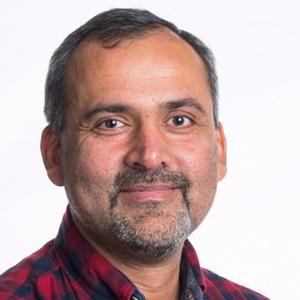This year, the Swedish Research Council has granted SEK 1.1 billion for research in science and technology. A total of 324 grants were made, 22 of them to Linköping University. LiU researchers are to share SEK 81 million between now and 2024.
Starting grants
Five researchers at LiU receive starting grants to build up their own research group. These are for amounts between SEK 3.4 and 4.9 million over five years. These researchers are:
- Sai Bai, Department of Physics, Chemistry and Biology (IFM), for research into metal-halogen perovskite diodes with long-term operational stability.
- Nara Kim, Department of Science and Technology (ITN), for research into organic electron-conduction and ion-conducting elastomers, which are candidates for next-generation implants.
- Zia Ullah Kahn, ITN, for research into thermoelectric effects in electrochemical energy-storage devices.
- Andrew Ross Winters, Department of Mathematics (MAI), for research into shallow water flows, including sediment spread and morphodynamics.
- Katerina Vrotsou, ITN, for research into information visualisation to combine the optimal properties of computers and humans to analyse large quantities of data more efficiently.
Project grants
In addition to the starting grants, LiU received 17 project grants for amounts between SEK 3.2 and 4.4 million. Of these, seven were awarded to IFM and four to ITN.
The following seven senior researchers at IFM received grants: Björn Wallner for modelling disordered proteins, Kajsa Uvdal for nanoparticle-activated neutrophils and the formation of extracellular traps, Jawad Ul-Hassan for remote epitaxial growth of silicon carbide nanophotonic single crystals used in quantum applications, Olle Hellman for an atomistic study of the pyroelectric effect, Urban Friberg for a study into the evolution of aging via harmful mutations that have increasing negative effects with increasing age, Weimin Chen for material defect-generated spin functionalities in Ga(In)NAs nanostructures at room temperature, and Rickard Armiento for machine learning in the study of the electronic structure of crystalline bulk materials and further extensions.
ITN was successful with four project applications, mainly in the field of organic electronics: Magnus Berggren for e-gelling, Simone Fabiano for doping-free organic conductors for next-generation electronics, Mats Fahlman for charge-transfer conditions at organic interfaces, and Magnus Jonsson for variable organic plasmonic nanoantennas.
In the Department of Electrical Engineering, Claudio Altafini was awarded a grant for work within automatic control, and Isaac Skog for tensor-based field localisation.
Four departments each received one project grant. At the Department of Computer and Information Science, Fredrik Lindsten received a grant for the project “Management of uncertainty within machine learning”. Peter Lundberg of the Department of Health, Medicine and Caring Sciences received funding to develop new techniques for modelling liver function. In MAI, Anders Björn was awarded a project grant for geometrical analysis of gromov hyperbolic spaces, their boundaries and other metrical dimensions, with applications for p-harmonic functions. Karin Wårdell in the Department of Biomedical Engineering received a grant for her project within multiparametric analysis of cerebral blood flow in the detection of ischaemia.
The complete list is available at Swedish Research Council webpage.
Translated by George Farrants




















